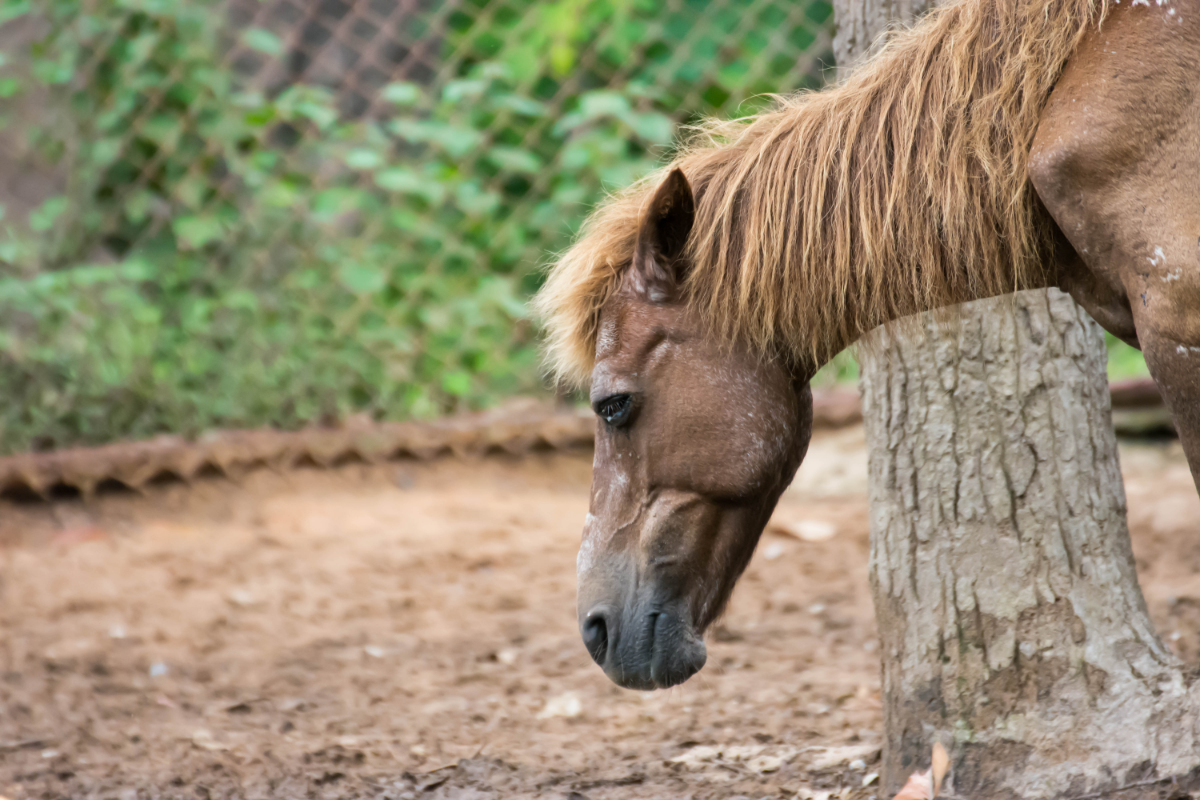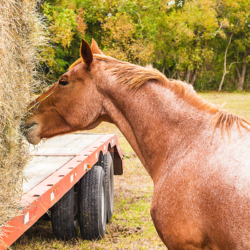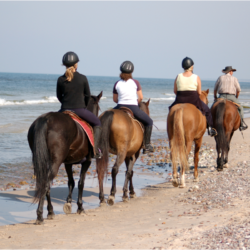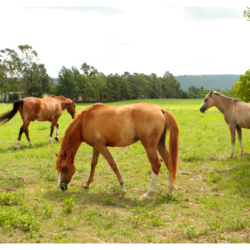For a more complete management of Cushing’s syndrome in horses, natural alternatives can be incorporated to complement drug treatment. These natural approaches can help support your horse’s immunity, musculature, joints and liver and kidney functions.
Feed supplements
- Immuno RS: This supplement is particularly useful during the change of season. It helps to strengthen the horse’s immune system and prevent opportunistic infections. It contains specific ingredients that stimulate natural defences and offer overall protection against pathogens.
- Myostem Mass: Specifically designed for horses suffering from muscle wasting due to Cushing’s syndrome, Myostem Mass promotes protein and muscle production. This supplement helps to limit weight loss and maintain healthy muscle mass, essential for the horse’s well-being and performance.
- Harpagyl: Containing harpagophytum, a plant renowned for its anti-inflammatory properties, Harpagyl is beneficial for horses with stiff joints. It can be combined with Hoof Biotin to improve hoof health, particularly useful in cases of chronic laminitis.
Medicinal plants
Medicinal plants play a crucial role in managing the symptoms of Cushing’s syndrome by supporting the body’s vital functions:
- Dandelion: Improves liver and urinary functions, promoting the elimination of toxins.
- Fumitory: Has depurative properties, helping to prevent bloating and maintain good digestion.
- Milk thistle: Contains liver-protecting silymarins, which help regenerate liver tissue and protect it from toxins.
- Boldo: Diuretic and hepatoprotective, improves urinary function and helps detoxification.
- Orthosiphon: Natural drainer, helps eliminate toxins through the digestive and renal systems.
- Black radish: Tones the liver and stimulates bile production, helping to eliminate toxins.
- Artichoke: Protects the liver, stimulates bile secretion and reduces bloating. The polyphenols present in artichoke have a protective and regenerative effect on liver cells.
- Walnut: in gemmotherapy, it helps regulate blood sugar levels and supports intestinal flora.
Joint support
Connective tissues such as tendons, ligaments and cartilage can be damaged by Cushing’s syndrome. The following herbs help to maintain joint health and relieve associated pain:
- Horsetail: Rich in silicon, horsetail strengthens cartilage and bones, relieves joint pain and promotes the rebuilding of cartilage.
- Chrysanthellum: Improves blood circulation, supports joints and strengthens capillary resistance.
- Nettle: Fortifying and remineralising, it prevents anaemia and arthritis, helps regenerate damaged tissue and relieves joint stiffness.
- Blackcurrant leaves: Cortison-like, it relieves joint pain, protects cartilage and improves joint elasticity.
Chaste tree: a promising plant
Chasteberry (Vitex agnus-castus) is of particular interest to horses suffering from Cushing’s syndrome because of its hormonal properties. Chasteberry fruit contains flavonoids, tannins, iridoids and an essential oil, along with bioactive compounds such as diterpenes (clerodadienol, vitexilactone, rotundifuran). These components have agonist effects on dopamine, making it an effective hormone regulator.
One study showed that daily administration of 10 ml of a Chasteberry tincture for three months significantly improved clinical signs associated with Cushing’s syndrome, such as hirsutism, lethargy, laminitis and polyuro-polydipsia. However, another study found no significant benefit. This suggests that the efficacy of chasteberry may depend on the galenic form and dosage used.
The recommended dose for horses is 10 to 30 ml of tincture per day, preferably in the morning. Chasteberry may therefore be an interesting alternative. However, further research is needed to confirm its efficacy in the treatment of Cushing’s syndrome in horses.
Vitamins and minerals
- Spirulina: Rich in vitamins and minerals, spirulina strengthens the horse’s overall body. It contains vitamins A and E, B group vitamins, omega 6 and essential fatty acids. It also contains numerous minerals and trace elements such as calcium, iron, magnesium and zinc.
- Alfalfa: Alfalfa is used to enhance the beauty of the horse’s manes, coat and horn. It also provides high-quality proteins.
- Griffonia: Griffonia is a powerful antioxidant that combats cell ageing and maintains general tone. It is particularly useful for older horses or those suffering from oxidative stress.
Incorporating these natural alternatives, in addition to medical treatments, can offer a holistic approach to managing Cushing’s syndrome . In this way, they improve your horse’s quality of life. As always, it is essential to consult your vet before adding any supplements or herbs to your horse’s care routine.





